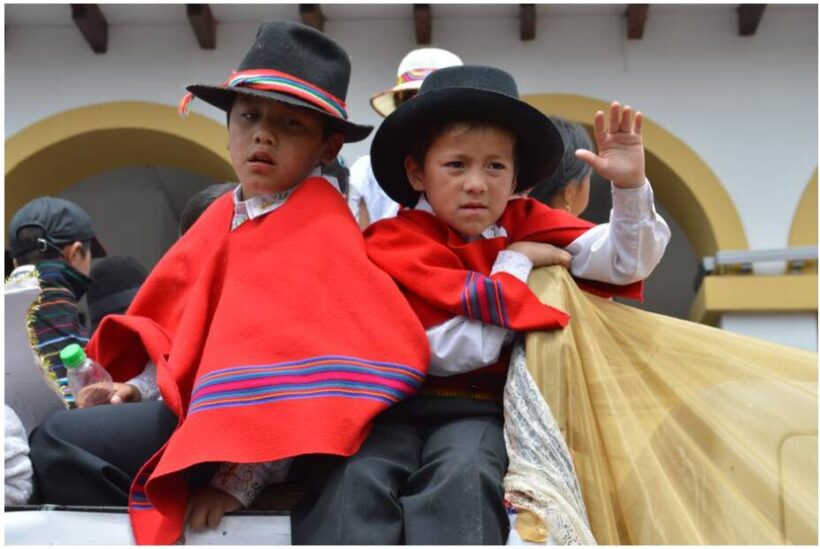Currency: U.S$
Exchange rate: 1.08 per € (March 2020)
Time zone: CET-6
Country code (phone): +593
Climate (for Quito): moderate (cold tropical)
International Airport (IATA): UIO (Quito), GYE (Guayaquil)
Basically, you can look forward to a pronounced hospitality and friendliness towards strangers, but you should also look forward to immense social contrasts, a machismo that is still often encountered (even if there are beginnings of a slow rethinking), a family oriented towards traditional (Catholic) morals and values and cease social life and the norms of behavior based on it. But the clocks do not stand still in Ecuador either. In a clear break with traditional morals, the Constitutional Court approved same-sex marriage in June 2019, albeit with a narrow majority.
Money
The US dollar is the official currency and means of payment. Credit cards are accepted almost everywhere. In principle, cash can be withdrawn directly from most ATMs using the EC card. However, not all machines accept Maestro or Cirrus cards. Payouts are not possible with V-Pay. Also, most banks limit withdrawals from their ATMs to $ 100 or $ 200. The cost of living in Ecuador is lower on average than in Europe. A lifestyle based on German conditions in the big cities of Quito, Guayaquil and Cuenca is hardly cheaper in comparison.
Security
According to the safety instructions from the Federal Foreign Office, travelers are urged to be cautious and vigilant due to the crime and propensity to use violence in Ecuador. There is an increased risk of falling victim to theft, robbery or other violent crimes, especially in the metropolises of Guayaquil and Quito and Cuenca, as well as on the coast. Also note the special safety instructions in the context of the current unrest and the state of emergency in the country. The Foreign Office is currently advising against “unnecessary trips to Ecuador (with the exception of the Galapagos Islands)”.
The crime has increased in Ecuador in recent years: thefts, armed robberies, murders, thefts of cars under threat or use of violence and sexual offenses. Quito, Guayaquil, Cuenca and the entire coastal region are particularly affected. Street crime is unfortunately a reality in Quito, Guayaquil and now also in Cuenca. After dark you shouldn’t walk in the respective cities outside the immediate city centers, which are relatively safe, regardless of how many people you are with. Never leave luggage and valuables in the car! If possible, jewelry should not be worn; Clocks, cameras and cell phones should not be conspicuously visible.
The perpetrators use the following tricks, among others:
- various diversionary maneuvers, for example with simulated breakdowns and mishaps or the dousing of various types of liquids
- Credit card fraud,
- “Fine” extortion using false uniforms,
- Robbery after the administration of mind-reducing drugs in the form of food, beverages or on brochures or leaflets that are distributed like advertising material,
- Ambushes by taxi drivers in unregistered taxis actively targeting potential customers.
Across the border region with Colombia, there is an increased risk of kidnapping and the activities of armed drug-related groups. In the north of the Esmeraldas province – San Lorenzo and the surrounding region – there have been repeated attacks on Ecuadorian security forces since the beginning of 2018, which are classified as organized crime and which resulted in several deaths and numerous injuries, including among civilians. On March 26, 2018, two journalists and their driver were kidnapped in this zone.
As a country located in northwestern part of South America according to ezinereligion, Ecuador is regularly hit by volcanic eruptions and earthquakes. Current information on volcanic activities in Spanish on the Instituto Geofísico website.
The British Foreign Office and the US State Department also publish safety notices.
Telecommunication, Internet
The telecommunications network is working well and cell phones are as widespread as in Europe. There are several cellular providers. Cell phones are available with a contract or with a ‘pay-as-you-go’ card. Internet access is not a problem in the cities and larger towns. The number of internet cafes is constantly growing.
Useful addresses
The first address for all Internet research on Latin America is the database (with search engine) of the Latin American Network Information Center (lanic). The Library of Congress in Washington is another good, constantly updated compilation of links primarily on political, economic, and legal topics. A useful Ecuador Internet portal is ecuador.com with, among other things, culture and travel information. The German online ” Ecuador Travel Guide ” is also very useful. The country dossier of the Federal Agency for Political Education contains good, even if in some cases outdated, thematic articles on Ecuador.
A lot of current information on culture and sport can be found in the newspaper El Comercio. Information about holidays, mains voltage (120 V, 60Hz) etc. The Ecuador entry in the Spiegel online country dictionary is also very helpful. The World Bank study Doing Business in Ecuador is informative.

